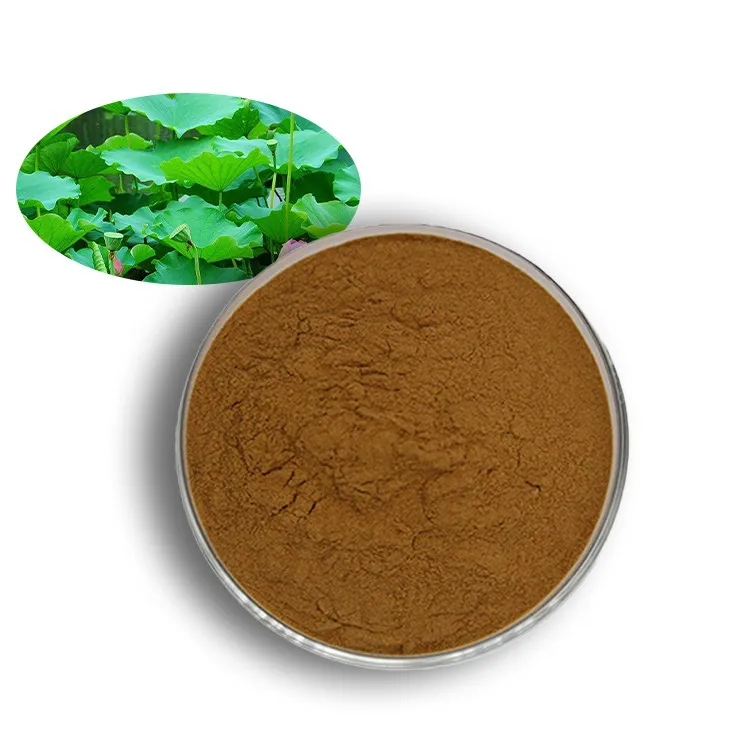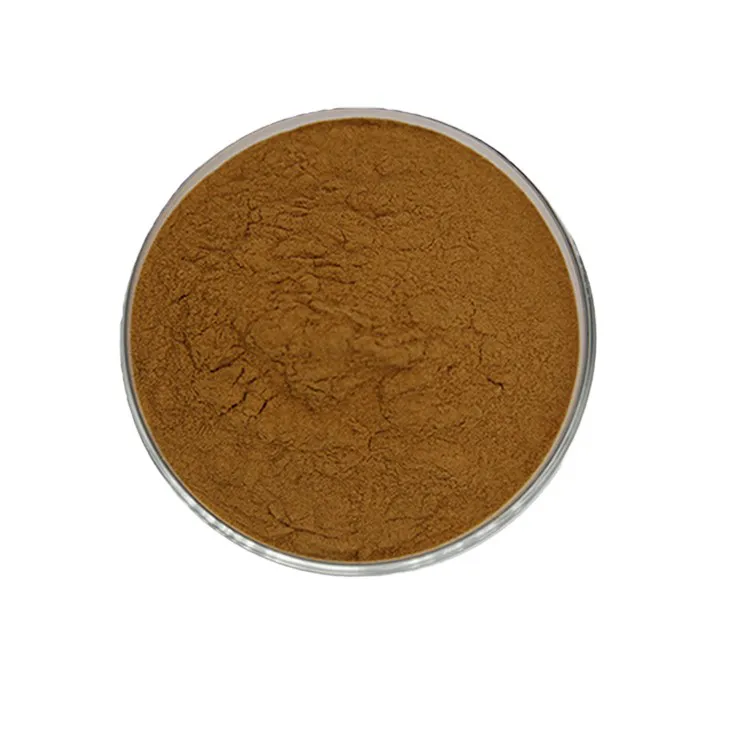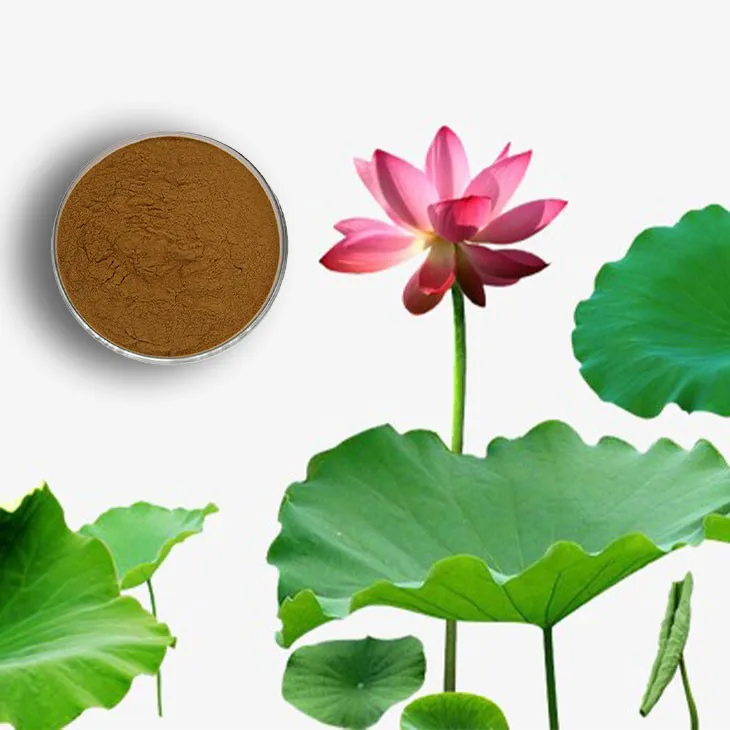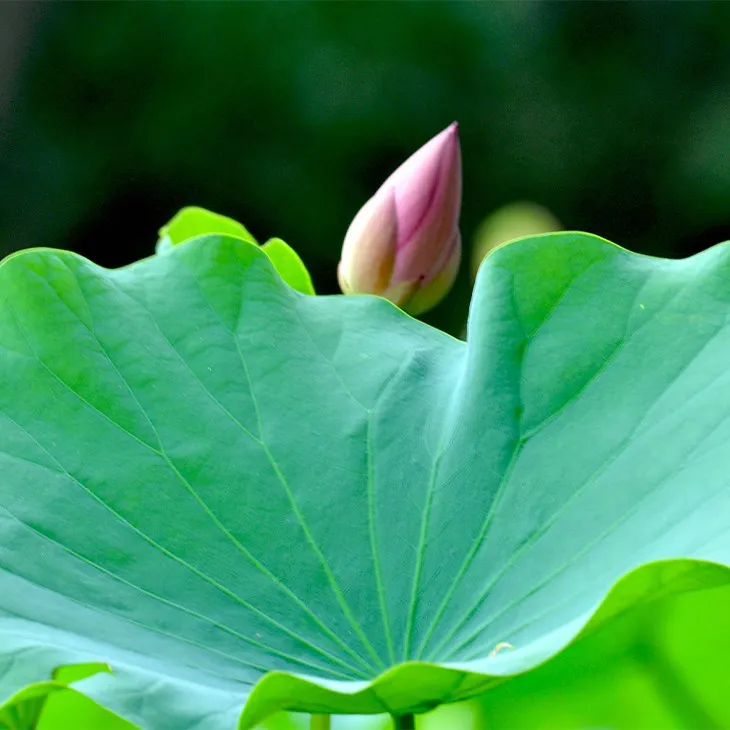- 0086-571-85302990
- sales@greenskybio.com
Certified organic lotus leaf extract.
2024-12-11

1. Introduction
Certified organic Lotus leaf extract is a product that has been garnering increasing attention in recent years. It is derived from the lotus leaf, which is grown and processed following strict organic standards. The lotus, a plant with a long - standing cultural and symbolic significance in many Asian countries, is now being recognized for its practical health - related applications through the extraction of its leaves.
The process of obtaining certified organic status is rigorous. It involves ensuring that the lotus plants are grown without the use of synthetic pesticides, fertilizers, or genetically modified organisms (GMOs). This not only guarantees the purity of the final extract but also aligns with the growing consumer demand for clean, natural, and sustainable products.

2. Bioactive Substances in Lotus leaf extract
The Lotus leaf extract is rich in a variety of bioactive substances, which are the key to its numerous functions. One of the prominent components is alkaloids. These alkaloids have been the subject of extensive research due to their potential pharmacological effects.
Another important group of substances are flavonoids. Flavonoids are well - known for their antioxidant properties. They can scavenge free radicals in the body, which are associated with various diseases such as cancer, heart disease, and aging - related disorders. The presence of flavonoids in the lotus leaf extract gives it the potential to act as a natural antioxidant supplement.
Tannins are also found in the lotus leaf extract. Tannins have astringent properties and can play a role in promoting digestion and maintaining gut health. They can also interact with proteins and other substances in the body, potentially influencing various physiological processes.

3. Functions of Certified Organic Lotus Leaf Extract
3.1 Regulation of Lipid Metabolism
One of the significant functions of the certified organic lotus leaf extract is its potential role in regulating lipid metabolism. In modern society, problems related to abnormal lipid levels, such as high cholesterol and triglycerides, are becoming more and more prevalent.
Studies have suggested that certain components in the lotus leaf extract may interfere with the absorption and synthesis of lipids in the body. For example, it may inhibit the activity of enzymes involved in lipid synthesis, thereby reducing the production of excess lipids. Additionally, it may enhance the excretion of lipids from the body, helping to maintain a healthy lipid profile.
3.2 Blood Sugar Level Regulation
The lotus leaf extract also shows promise in the regulation of blood sugar levels. Diabetes has become a global epidemic, and finding natural ways to manage blood sugar is of great importance.
Research indicates that the extract may affect the insulin signaling pathway. It may enhance the sensitivity of cells to insulin, allowing for more efficient uptake and utilization of glucose. Moreover, it may also have an impact on the release of glucose from the liver, preventing excessive glucose from entering the bloodstream.

4. Applications in the Food and Beverage Industry
4.1 Natural Flavor Enhancer
In the food and beverage industry, the certified organic lotus leaf extract can serve as a natural flavor enhancer. It imparts a unique, delicate flavor to products. The flavor is often described as slightly sweet, with a hint of freshness and earthiness.
This makes it an ideal ingredient for a wide range of products. For example, in tea products, it can add a new dimension to the flavor profile, enhancing the overall taste experience. It can also be used in the production of herbal infusions, where its flavor can blend well with other herbs and spices.
4.2 Functional Ingredient
As a functional ingredient, the lotus leaf extract offers potential health benefits in addition to its flavor - enhancing properties. In the development of functional foods and beverages, it can be incorporated to target specific health concerns.
For instance, in products aimed at promoting heart health, the lipid - regulating properties of the extract can be highlighted. In diabetic - friendly products, its blood sugar - regulating ability can be utilized. This allows food and beverage manufacturers to create products that not only taste good but also have added health value.

5. Market Potential and Consumer Appeal
The market potential for certified organic lotus leaf extract is substantial. As consumers become more health - conscious and interested in natural remedies, the demand for products containing such extracts is likely to grow.
Consumers are increasingly looking for products that are both effective and free from artificial additives. The organic certification of the lotus leaf extract adds to its appeal, as it provides assurance of quality and purity. Moreover, the cultural and historical associations of the lotus plant in many regions can also contribute to its marketability.
The extract can be incorporated into a variety of product forms, such as dietary supplements, ready - to - drink beverages, and even beauty products. This versatility further expands its market reach and potential.
6. Production and Quality Control
6.1 Production Process
The production of certified organic lotus leaf extract involves several key steps. First, the lotus leaves need to be carefully harvested at the appropriate time. This is crucial as the content of bioactive substances may vary depending on the growth stage of the leaves.
After harvesting, the leaves are typically washed thoroughly to remove any impurities. Then, they are subjected to extraction methods, which may include solvent extraction or supercritical fluid extraction. The choice of extraction method can affect the yield and quality of the final extract.
6.2 Quality Control
Quality control is of utmost importance in the production of organic lotus leaf extract. Throughout the production process, strict monitoring is required to ensure that the product meets the organic certification standards.
Testing for the presence of contaminants, such as heavy metals and pesticides, is essential. Additionally, the content of bioactive substances should be analyzed to ensure consistency in product quality. Only by maintaining high - quality control can the reputation and marketability of the extract be safeguarded.
7. Future Prospects
The future looks bright for certified organic lotus leaf extract. As research continues to uncover more of its health benefits and potential applications, its popularity is expected to increase.
There is also potential for further development in extraction techniques, which could lead to more efficient and higher - quality production. This, in turn, could drive down costs and make the extract more accessible to a wider range of consumers.
Collaboration between the scientific community, producers, and regulatory bodies will be crucial in ensuring the sustainable development and safe use of this valuable extract in the future.
FAQ:
What are the main bioactive substances in certified organic lotus leaf extract?
The main bioactive substances in certified organic lotus leaf extract include alkaloids, flavonoids, and polysaccharides. These substances contribute to its various functions, such as potential effects on lipid metabolism and blood sugar regulation.
How is the certified organic lotus leaf extract produced?
It is produced from lotus leaves that are organically cultivated. After harvesting, appropriate extraction methods are used to obtain the extract. These methods ensure that the bioactive substances are retained while maintaining the organic nature of the product.
Can the certified organic lotus leaf extract be used in dietary supplements?
Yes, it can be used in dietary supplements. Given its potential benefits for lipid metabolism and blood sugar regulation, it is a suitable ingredient for dietary supplements aimed at promoting health and wellness.
What makes the certified organic lotus leaf extract a natural flavor enhancer?
The unique chemical composition of the lotus leaf extract gives it a distinct flavor profile. This profile can enhance the taste of food and beverage products in a natural way, without the need for artificial flavorings.
Is there any research on the long - term safety of using certified organic lotus leaf extract?
While there is some research on the immediate effects and potential benefits of lotus leaf extract, more comprehensive studies on its long - term safety are still needed. However, as it is a natural product, it is generally considered to be relatively safe when used in appropriate amounts.
Related literature
- Bioactive Compounds in Lotus Leaves: A Review of Their Health - Promoting Properties"
- "Organic Cultivation and Extraction of Lotus Leaf: Towards a Sustainable and Functional Ingredient"
- "The Role of Lotus Leaf Extract in Food and Beverage Industry: Flavor and Function"
- ▶ Hesperidin
- ▶ citrus bioflavonoids
- ▶ plant extract
- ▶ lycopene
- ▶ Diosmin
- ▶ Grape seed extract
- ▶ Sea buckthorn Juice Powder
- ▶ Beetroot powder
- ▶ Hops Extract
- ▶ Artichoke Extract
- ▶ Reishi mushroom extract
- ▶ Astaxanthin
- ▶ Green Tea Extract
- ▶ Curcumin Extract
- ▶ Horse Chestnut Extract
- ▶ Other Problems
- ▶ Boswellia Serrata Extract
- ▶ Resveratrol Extract
- ▶ Marigold Extract
- ▶ Grape Leaf Extract
- ▶ blog3
- ▶ blog4
- ▶ blog5
-
Pure 85% Tomentil Extract.
2024-12-11
-
Yellow Pine Extract
2024-12-11
-
Camu Camu Extract
2024-12-11
-
Europen Bilberry Extract
2024-12-11
-
Quercetin
2024-12-11
-
Chia Seed Powder
2024-12-11
-
Hesperidin
2024-12-11
-
Maca Extract
2024-12-11
-
Lemon Balm Extract
2024-12-11
-
Kidney Bean Extract
2024-12-11
-
Lemon Juice Powder
2024-12-11





















